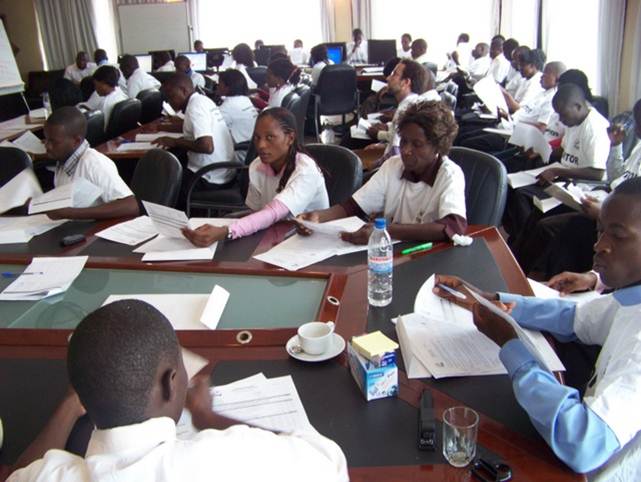Technology Engagements Aren’t Always Technical

For the last fifteen years or so we have employed technologies as components of many of our democracy strengthening programs. A wide range of technologies and associated strategies have been used to support activists, political parties, legislatures, women in politics and civic groups around the world as our partners struggle to strengthen the democratic institutions in their countries, increase the space for broad participation in political life and safeguard their elections. In this period we’ve been able to see the transformational potential of new technologies applied to democratic development.
The new media, mobile and other technologies that have evolved over the last several years, while in many ways still exploratory in their application to politics, have been put to particularly good use in support of political campaigns and other forms of democratic expression. While introduction of new media and other technologies should not be seen as a panacea for democratic development or a goal in and of itself, these technologies paired with effective methodologies can help organizations make significant contributions toward advancing the democratic process. Democratic development is a long term commitment and process, and effective use of technologies by activists, political parties, candidates, civic groups and others can support and even accelerate the process when the tools are used well.
The strengths of the early uses of new media for activism have been in communication and sharing information about political developments. However, thus far the tools have been less effective for the organizing required that can lead to constructive political outcomes. In some situations information has been produced by citizens using innovative new media tools that initiates a process of political change, but the process stalled due to a lack of the organizations or institutions required to capture the interests and information being shared, organize the people and channel the process toward purposeful, strategic and peaceful direct action. Assisting organizations in these countries to build this capacity is an important component in leveraging new media and other technology tools toward effective political reform.
For example, those that followed the Iran election on Twitter in 2009 may have felt frustration as a large amount of information was being captured and posted on the Internet during the election protests, but the organizations and political parties in the country were not in a position to channel the information being gathered and the energy of the crowds into a process that may have led to a reform-based outcome.
An example of a successful combination of tools, good organizing and strong organizations making important political gains in a repressive environment was the efforts of a strong civic group and opposition political party in the 2008 Zimbabwe election.
